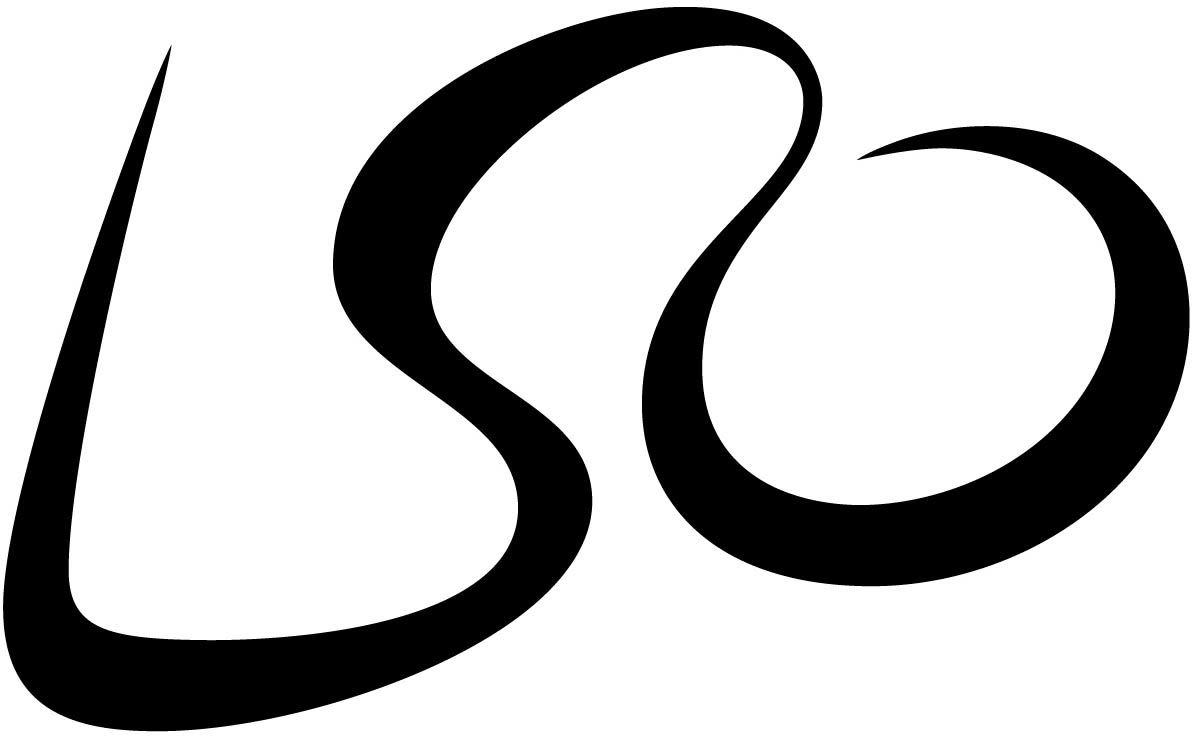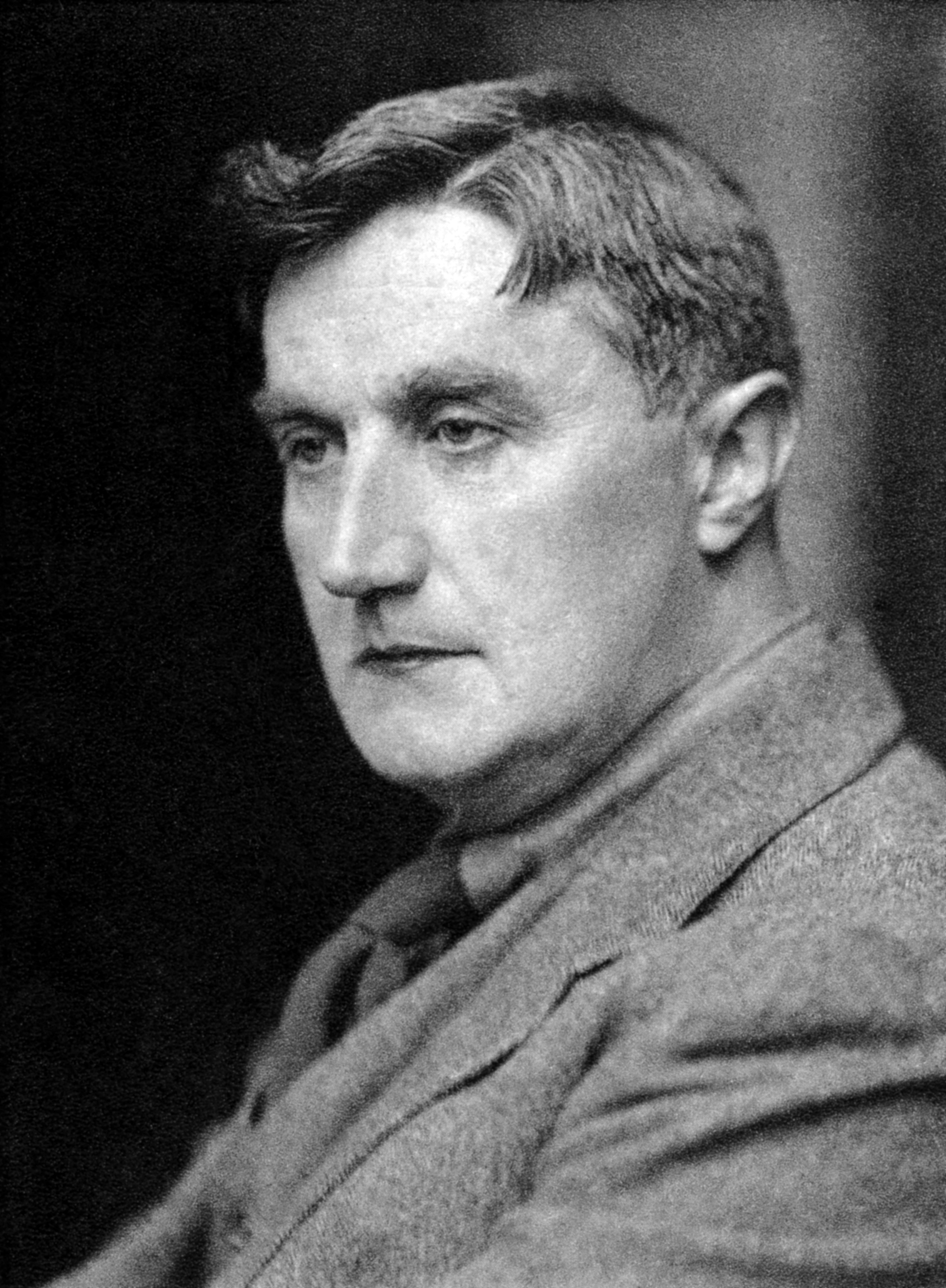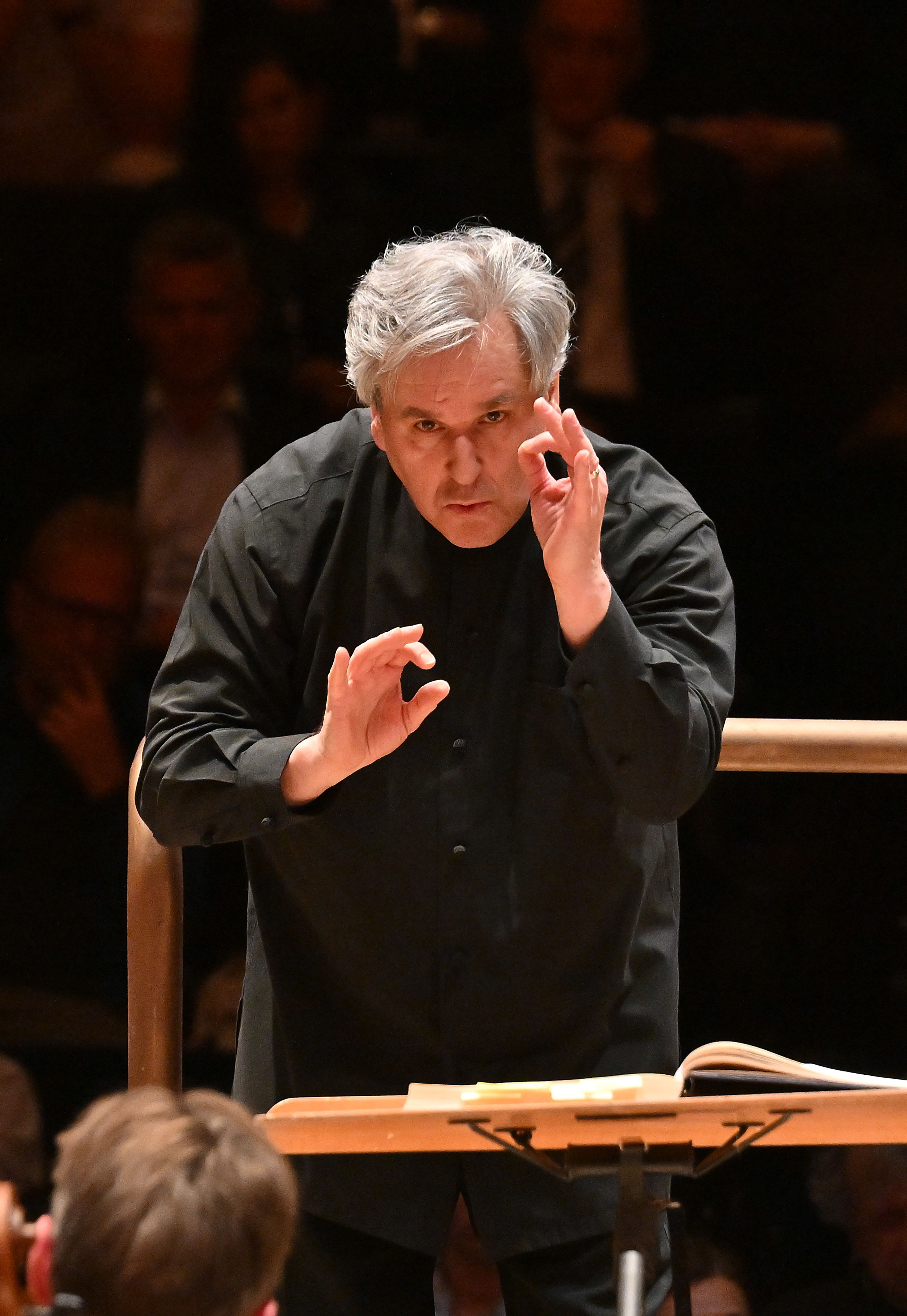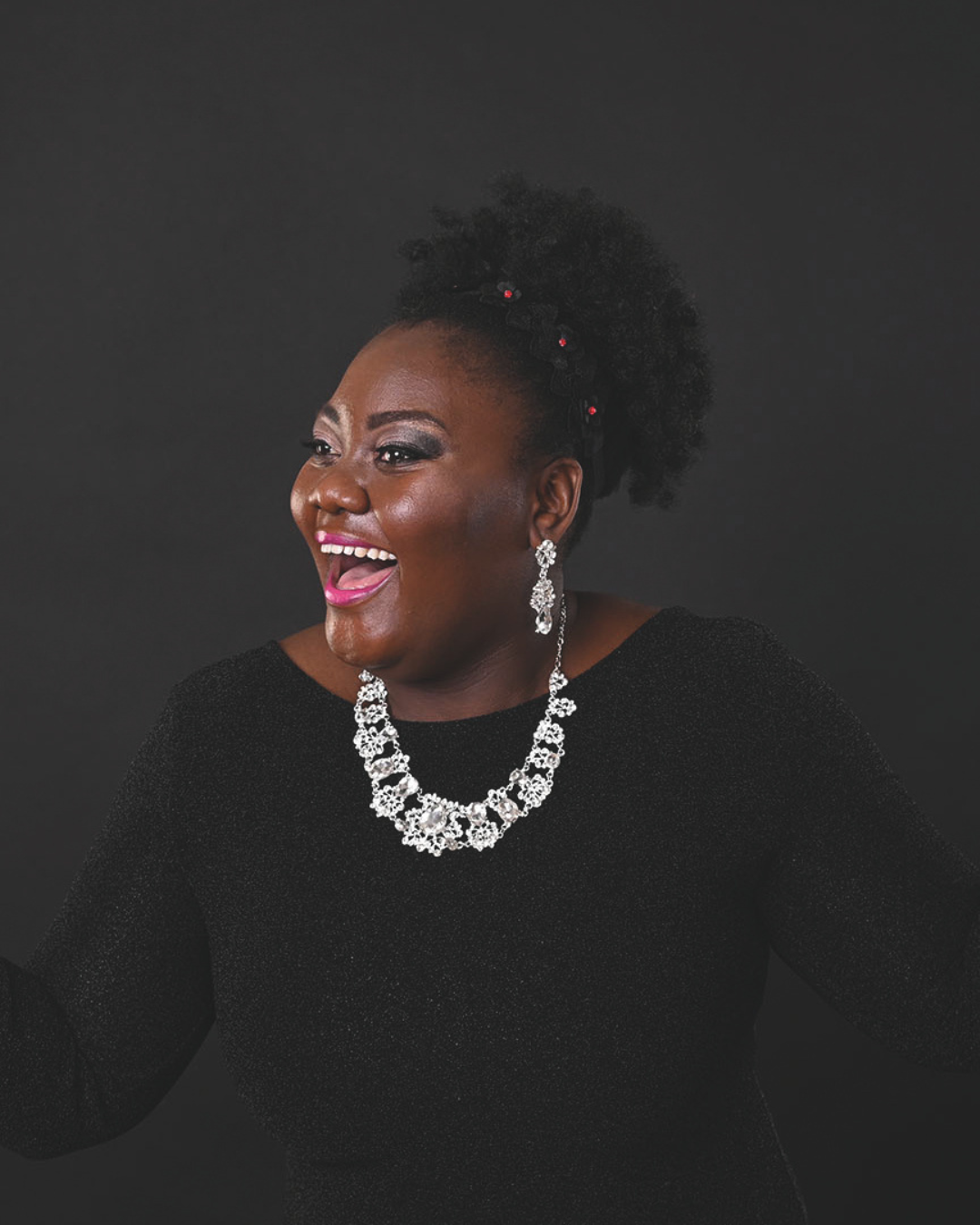Symphony No 1
Vaughan Williams
✒️1903–1909 | ⏰ 63 minutes
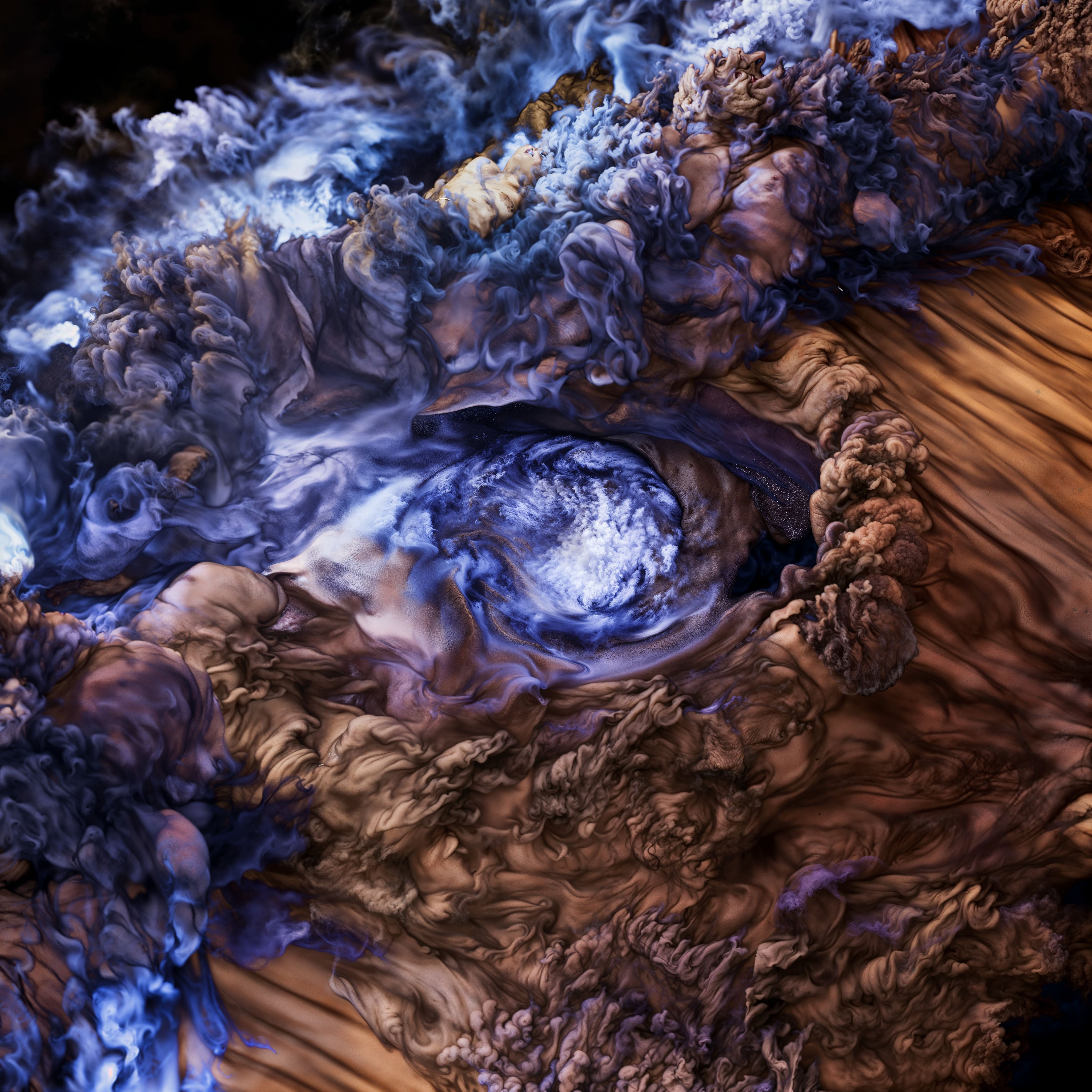
Ralph Vaughan Williams
Born: Gloucestershire, 1872
Died: London, 1958
‘The art of music … is the expression of the soul of a nation – any community of people who are spiritually bound together.’
Ralph Vaughan Williams was a major figure in the reflowering of English music in the early 20th century – along with Edward Elgar, Gustav Holst and Frederick Delius – and helped to dispel England’s reputation as ‘The Land Without Music’.
He was born in Gloucester, his father a vicar and his mother a relative both of Josiah Wedgwood (the pottery designer) and Charles Darwin. He studied at London’s Royal College of Music, where he became close friends with Holst. In the first years of the 1900s he began his work collecting folk-songs (over 800 in all) and became interested in Elizabethan music – both of these interests influenced his own music – and also edited the hymn collection The English Hymnal. With a keen social conscience, he lied about his age in order to serve in World War I, during which he lost many friends, including the young composer George Butterworth.
His choral works include Toward the Unknown Region and the Five Mystical Songs and his setting of Shakespeare, Serenade to Music, also remains popular; he wrote nine symphonies, four operas and several works for solo instrument with orchestra – including, more unusually, for tuba and for harmonica. The soaring, folk-song-coloured The Lark Ascending for violin and orchestra and the haunting Fantasia on a Theme of Thomas Tallis for double string orchestra remain his most popular works, seen as emblematic of British music of this period. After the death of his first wife in 1951, he remarried aged 80, reviving his zest for life.
What's the story?
Ralph Vaughan Williams established his name as a composer relatively late in life. He won his first major public success with Toward the Unknown Region, first performed at the Leeds Festival in 1907. This was a setting of a text by the nature-loving mystical American poet Walt Whitman. But four years earlier Vaughan Williams had started work on some other Whitman texts, from the collection Leaves of Grass.
Over the course of six years, this was to become A Sea Symphony, an ambitious work for soprano and baritone soloists along with choir (there were nearly 350 singers at the first performance) and orchestra. Vaughan Williams conducted the first performance in 1910, again at the Leeds Festival, on the day of his 38th birthday.
What makes this piece so special?
Vaughan Williams’ first symphony, A Sea Symphony, is a classic among a surge of sea-inspired pieces by English composers around the first decade of the 20th century – among them are Elgar’s Sea Pictures (1899), Delius’ Sea Drift (1903-4) and Stanford’s Songs of the Sea (1904). It’s also one of the first symphonies to feature a chorus throughout, even if Beethoven, Mendelssohn and Mahler had introduced voices more sparingly in their symphonies.
After the first performance, the London Daily News recognised the work’s ‘wild, unfettered imagination’ and admired the way the voices blended with the orchestra. It also acknowledged that the piece was somewhat challenging for the audience. The composer’s friend Lucy Broadwood spoke of the ‘impossible feats’ required of the singers and teasingly suggested that the vocal soloists might be forwarding Vaughan Williams their throat doctors’ bills.
What is the music like?
Vaughan Williams brilliantly captures the sea’s surging power and turbulence. The scale, grandeur and majesty are extravagant, even overwhelming in places. But the dark, brooding second movement is a balancing contrast.
Vaughan Williams said that, when he first heard the opening brass chords and the following dramatic choral entry in rehearsal, he was nearly blown off the rostrum. The key change with the choir’s opening words, ‘Behold, the sea itself’, has the effect of a rug-pulled-from-under-the-feet reveal. The solo baritone arrives with a hornpipe-like theme (‘Today, a rude brief recitative’), later turning to a more solemn ‘chant for the sailors of all nations’, and the soprano enters more dramatically (‘Flaunt out, O sea, your separate flags of nations!’) as if with a bugle call, but soon melts into soaring, flowing lines.
The second movement, ‘On the beach at night, alone’, is a haunting, nocturnal picture: still, somewhat distant and illuminated by half-lights. Perhaps here we detect the influence of the master orchestrator Maurice Ravel, with whom Vaughan Williams studied in Paris in 1907–8.
The Scherzo (third movement) launches with a reference to the brass fanfare that opened the first movement. There’s circling energy as the text speaks of ‘whistling winds’ blowing the ships’ sails taut. In the middle section a rousing hymn-like tune celebrates the ‘great vessel sailing’.
The finale opens in quiet wonder at the universe’s unfathomable depths. Later comes a grand anthem at ‘O thou transcendent’ but the mood is swiftly dispelled by the spirited ‘Away O Soul!’. The epilogue returns us to the realm of the unknown, but now in the knowledge that the soul will journey ‘where mariner has not yet dared to go’.
A Sea Symphony
Text
I. A song for all seas, all ships
Behold, the sea itself,
And on its limitless, heaving breast, the ships:
See, where their white sails, bellying in the
wind, speckle the green and blue,
See, the steamers coming and going, steaming in or out of port,
See, dusky and undulating, the long pennants of smoke.
Behold, the sea itself,
And on its limitless, heaving breast, the ships.
Today a rude brief recitative,
Of ships sailing the seas, each with its special flag or ship-signal,
Of unnamed heroes in the ships – of waves spreading
and spreading far as the eye can reach,
Of dashing spray, and the winds piping and blowing.
And out of these a chant for the sailors of all nations,
Fitful, like a surge.
Of sea-captains young or old, and the mates, and of all intrepid sailors,
Of the few, very choice, taciturn, whom fate
can never surprise nor death dismay.
Picked sparingly without noise by thee old ocean, chosen by thee,
Thou sea that pickest and cullest the race
in time, and unitest the nations,
Suckled by thee, old husky nurse, embodying thee,
Indomitable, untamed as thee.
Flaunt out O sea your separate flags of nations!
Flaunt out visible as ever the various flags and ship-signals!
But do you reserve especially for yourself and for
the soul of man one flag above all the rest,
A spiritual woven signal for all nations,
emblem of man elate above death,
Token of all brave captains and of all intrepid sailors and mates,
And of all that went down doing their duty,
Reminiscent of them, twined from all intrepid captains young or old,
A pennant universal, subtly waving all time, o’er all brave sailors,
All seas, all ships.
II. On the beach at night alone
On the beach at night alone,
As the old mother sways her to and fro singing her husky song,
As I watch the bright stars shining,
I think a thought of the clef of the universes and of the future.
A vast similitude interlocks all,
All distances of space however wide,
All distances of time,
All souls, all living bodies though they be ever so different,
All nations, all identities that have existed or may exist,
All lives and deaths, all of the past, present, future,
This vast similitude spans them, and always has spanned,
And shall forever span them, and shall
compactly hold and enclose them.
III. Scherzo – The waves
After the sea-ship, after the whistling winds,
After the white-gray sails taut to their spars and ropes,
Below, a myriad, myriad waves hastening, lifting up their necks,
Tending in ceaseless flow toward the track of the ship,
Waves of the ocean bubbling and gurgling, blithely prying,
Waves, undulating waves, liquid, uneven, emulous waves,
Toward that whirling current, laughing and buoyant with curves,
Where the great vessel sailing and tacking displaced the surface,
Larger and smaller waves in the spread of the ocean yearnfully flowing,
The wake of the sea-ship after she passes,
flashing and frolicsome under the sun,
A motley procession with many a fleck of foam and many fragments,
Following the stately and rapid ship, in the wake of following.
IV. The explorers
O vast Rondure, swimming in space,
Covered all over with visible power and beauty,
Alternate light and day and the teeming spiritual darkness,
Unspeakable high processions of sun and
moon and countless stars above,
Below, the manifold grass and waters,
With inscrutable purpose, some hidden prophetic intention,
Now first it seems my thought begins to span thee.
Down from the gardens of Asia descending,
Adam and Eve appear, then their myriad progeny after them,
Wandering, yearning, with restless explorations,
With questionings, baffled, formless, feverish, with never-happy hearts,
With that sad incessant refrain,
Wherefore unsatisfied soul?
Whither O mocking life?
Ah who shall soothe these feverish children?
Who justify these restless explorations?
Who speak the secret of impassive earth?
Wherefore unsatisfied soul?
Whither O mocking life?
Yet soul be sure the first intent remains, and shall be carried out,
Perhaps even now the time has arrived.
After the seas are all crossed,
After the great captains have accomplished their work,
After the noble inventors,
Finally shall come the poet worthy that name,
The true son of God shall come singing his songs.
O we can wait no longer,
We too take ship O soul,
Joyous we too launch out on trackless seas,
Fearless for unknown shores on waves of ecstasy to sail,
Amid the wafting winds, thou pressing me to thee, I thee to me, O soul,
Caroling free, singing our song of God,
Chanting our chant of pleasant exploration.
O soul thou pleasest me, I thee,
Sailing these seas or on the hills, or waking in the night,
Thoughts, silent thoughts, of Time and Space
and Death, like waters flowing,
Bear me indeed as through the regions infinite,
Whose air I breathe, whose ripples hear, lave me all over,
Bathe me O God in thee, mounting to thee,
I and my soul to range in range of thee.
O thou transcendent,
Nameless, the fibre and the breath,
Light of the light, shedding forth universes, thou centre of them.
Swiftly I shrivel at the thought of God,
At Nature and its wonders, Time and Space and Death,
But that I, turning, call to thee O soul, thou actual Me,
And lo, thou gently masterest the orbs,
Thou matest Time, smilest content at Death,
And fillest, swellest full the vastness of Space.
Greater than stars or suns,
Bounding O soul thou journeyest forth;
Away O soul! hoist instantly the anchor!
Cut the hawsers – haul out – shake out every sail!
Sail forth – steer for the deep waters only.
Reckless O soul, exploring, I with thee, and thou with me,
For we are bound where mariner has not yet dared to go,
And we will risk the ship, ourselves and all.
O my brave soul!
O farther, farther sail!
O daring joy, but safe! are they not all the seas of God?
O farther, farther, farther sail!
Walt Whitman (1819–92)
Keep Listening
Delve deeper into the music featured in our Half Six Fix series, and find related music recommendations, with our Half Six Fix playlist.

Sir Antonio Pappano
Chief Conductor
After 22 years as Music Director of the Royal Opera, Covent Garden, Sir Antonio Pappano became Chief Conductor of the LSO. He was born just 20 miles away, in Epping, and moved to the US aged 13 but now lives in London. He has held lead positions with the Théâtre de la Monnaie in Brussels (1992–2002) and the Orchestra dell’Accademia Nazionale di Santa Cecilia in Rome (2005–23). Opera is in his blood, and he brings this love of dramatic narrative and storytelling to his orchestral performances too. But he directs his players with great immediacy: his conducting style is unfiltered, impassioned and straight from the heart. A natural communicator about music, too, he has presented programmes for BBC TV. Last year he was appointed Commander of the Royal Victorian Order, having conducted at the Coronation of King Charles and Queen Camilla last year.
Mariana Rosas
LSC Chorus Director
Mariana Rosas is an Argentinian conductor based in the UK and Chorus Director of the London Symphony Chorus. In that role she has collaborated with Sir Antonio Pappano, Gianandrea Noseda, Michael Tilson Thomas, and Dr André J Thomas amongst others. As well as her work with the LSC, Rosas has collaborated with the Royal Opera House, Glyndebourne, National Youth Choirs of Great Britain, Birmingham Opera Company, Rundfunkchor Berlin, BBC Symphony Chorus, City of Birmingham Symphony Orchestra Chorus, London Voices and the West Midlands Inclusive Choir. She also holds teaching and conducting positions at the University of Birmingham. Rosas’ 2024/2025 engagements include working with the Royal College of Music and the WDR Rundfunkchor Cologne.
Masabane Cecilia Rangwanasha
soprano
South African soprano Masabane Cecilia Rangwanasha won the Song Prize at the 2021 BBC Cardiff Singer of the World Competition and most recently was awarded the 2024 Herbert von Karajan Prize. In 2024/25, she performs in Beethoven’s Symphony No 9 with the Munich Philharmonic Orchestra under Nicholas Collon and Tippett’s A Child of Our Time with the Royal Northern Sinfonia under Dinis Sousa. She also returns to the role of Liù in concert performances of Puccini’s Turandot with the Minnesota Orchestra under Thomas Søndergård. In addition, Rangwanasha performs Verdi’s Requiem at the Wiener Konzerthaus under Daniel Harding, with the Bergen Philharmonic under Jader Bignamini, and at the International Maifestspiele Wiesbaden under Leo McFall, and returns to the Accademia Nazionale di Santa Cecilia to sing under Daniel Harding.
Will Liverman
baritone
Called ‘a voice for this historic moment’ (Washington Post), Grammy Award–winning baritone Will Liverman is the recipient of the 2022 Beverly Sills Artist Award and the co-creator of The Factotum, which premiered at the Lyric Opera Chicago in 2023. Following summer 2024 appearances at the BBC Proms in Britten’s War Requiem, Sibelius’ The Origin of Fire and Scriabin’s Prometheus, Poem of Fire led by Andris Nelsons at Tanglewood, and for Aspen Music Festival’s Opera Benefit, Liverman reprises the iconic role of Papageno in the Metropolitan Opera’s holiday presentation of Mozart’s The Magic Flute, returns to Lyric Opera of Chicago as Marcello in Puccini’s La bohème, and joins Dutch National Opera for another season, this time as Ned Keene in Britten’s Peter Grimes. He makes his house debut during the 2024/25 season at San Francisco Opera, also portraying Marcello in La bohème.
The London Symphony Orchestra
At the London Symphony Orchestra, we strive to inspire hearts and minds through world-leading music-making. We were established in 1904 as one of the first orchestras shaped by its musicians, and today we’re ranked among the world’s top orchestras. As Resident Orchestra at the Barbican since the Centre opened in 1982, we perform some 70 concerts here every year. We also perform over 50 concerts a year to audiences throughout the UK and worldwide, and deliver a far-reaching programme of recordings, live-streams and on-demand broadcasts. Through our world-leading learning and community programme, LSO Discovery, we’re connecting people from all walks of life to the power of great music. Our musicians are at the heart of this unique programme. In 1999 we formed our own recording label, LSO Live, which has become one of the world’s most talked-about classical labels. As a leading orchestra for film, we’ve entertained millions with classic scores for Star Wars, Indiana Jones and many more.
The London Symphony Chorus
The London Symphony Chorus was founded in 1966 to complement the work of the London Symphony Orchestra. The LSC has performed with leading orchestras, frequently with the LSO and also with the Berlin Philharmonic, Vienna Philharmonic, Leipzig Gewandhaus, Los Angeles Philharmonic and New York Philharmonic. Last season’s concerts included Felix Mendelssohn’s Elijah with Sir Antonio Pappano; Leoš Janáček’s Jenůfa with Sir Simon Rattle; Anton Bruckner’s Te Deum with Nathalie Stutzmann; and Gustav Mahler’s Symphony No 3 with Michael Tilson Thomas. The Chorus is an independent charity run by its members. It is committed to artistic excellence, to equality and diversity and the vocal development of its members. It engages actively in the musical life of London – seeking new members and audiences as well as commissioning and performing new works.
On Stage
Leader
Andrej Power
First Violins
Cellerina Park
Clare Duckworth
Ginette Decuyper
Laura Dixon
Maxine Kwok
William Melvin
Stefano Mengoli
Claire Parfitt
Elizabeth Pigram
Laurent Quénelle
Harriet Rayfield
Sylvain Vasseur
Djumash Poulsen
Olatz Ruiz de Gordejuela
Rhys Watkins
Second Violins
Julián Gil Rodríguez
Thomas Norris
Miya Väisänen
Matthew Gardner
Naoko Keatley
Alix Lagasse
Belinda McFarlane
Iwona Muszynska
Csilla Pogány
Andrew Pollock
Paul Robson
Louise Shackelton
Polina Makhina
Shoshanah Sievers
Violas
Eivind Ringstad
Gillianne Haddow
Malcolm Johnston
Anna Bastow
Thomas Beer
Steve Doman
Julia O’Riordan
Sofia Silva Sousa
Mizuho Ueyama
Regina Beukes
Errika Collins
Philip Hall
Cellos
Laure Le Dantec
Alastair Blayden
Salvador Bolón
Ève-Marie Caravassilis
Daniel Gardner
Amanda Truelove
Silvestrs Kalnins
Ghislaine McMullin
Miwa Rosso
Peteris Sokolovskis
Double Basses
Rodrigo Moro Martín
Patrick Laurence
Thomas Goodman
Chaemun Im
Joe Melvin
Jani Pensola
Simon Oliver
Colin Paris
Flutes
Gareth Davies
Imogen Royce
Piccolo
Patricia Moynihan
Oboes
Juliana Koch
Olivier Stankiewicz
Rosie Jenkins
Cor Anglais
Sarah Harper
Clarinets
Chris Richards
Chi-Yu Mo
Sarah Thurlow
Bass Clarinet
Ferran Garcerà Perelló
Bassoons
Daniel Jemison
Joost Bosdijk
Contra Bassoon
Martin Field
Horns
Diego Incertis Sánchez
Mihajlo Bulajic
Timothy Jones
Angela Barnes
Jonathan Maloney
Trumpets
James Fountain
Thomas Fountain
Adam Wright
Katie Smith
Trombones
Merin Rhyd
Jonathan Hollick
Bass Trombone
Paul Milner
Tuba
Ben Thomson
Timpani
Nigel Thomas
Percussion
Neil Percy
David Jackson
Sam Walton
Patrick King
Harps
Bryn Lewis
Anneke Hodnett
Organ
Catherine Edwards
Programme Notes Edward Bhesania. Edward Bhesania is a music journalist and editor who writes for The Stage, The Strad and the Guildhall School of Music & Drama.
LSO Visual Identity & Concept Design Bridge & Partners

